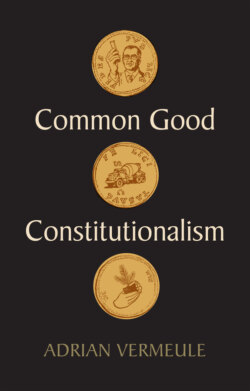Читать книгу Common Good Constitutionalism - Adrian Vermeule - Страница 19
Vices and Virtues
ОглавлениеNone of this means that progressivism and originalism are wholly valueless. Just as vices may sometimes be deformations or exaggerations of virtues, so too progressivism and originalism are themselves both deformations of legitimate insights and legitimate parts of the overall scheme of classical legalism. Progressivism exaggerates the entirely legitimate idea that doctrine may develop over time, not because principles of constitutionalism change, but because circumstances do, so that the application of permanent principles in new circumstances may require a development of doctrine. Progressivism goes wrong by extending this idea to the principles themselves, proposing to update and even discard them in the service of the endless advance of human liberation. In what follows, I will distinguish legitimate development from the vices of legal progressivism.
So too, originalism rests on the entirely legitimate insight that the public authority may establish rules of municipal positive law, the ius civile, that vary from place to place and time to time, and that interpreters should respect the lawmaker’s aims and choices when they implement a reasoned determination of the civil law for the common good. The problem arises when originalism attempts to liberate itself from the larger framework of the law overall, which includes both general principles of legal justice (ius) and particular written laws (lex), and which interprets the ius civile to harmonize with the broader background principles and commitments of the legal system, including the natural law (ius naturale) and the law of nations (ius gentium).
Properly speaking, the classical approach to law is not an opponent or alternative to originalism or textualism. Rather it includes its own properly chastened versions of those ideas, because it includes the ius civile as part of a larger scheme of law, and because it respects the authority that determines the content of the positive law. Yet it also limits and orders that law, and the duties of its interpreters, by binding it to the common good. The positive civil law is a good servant, but a bad master. The classical conception of ius civile, in other words, can be summed up as positive law without jurisprudential positivism.
